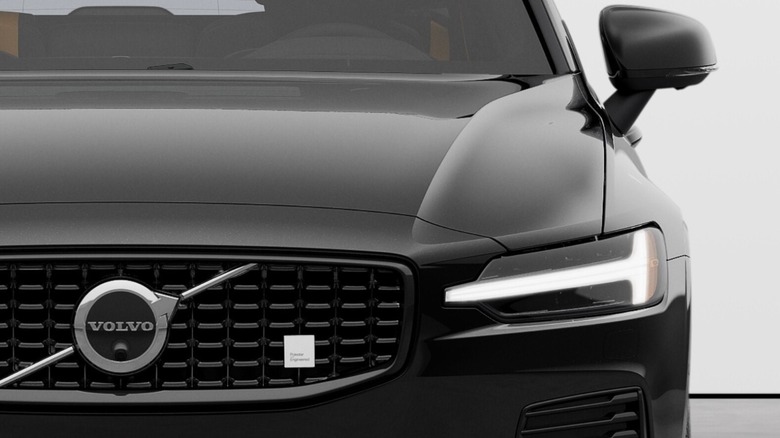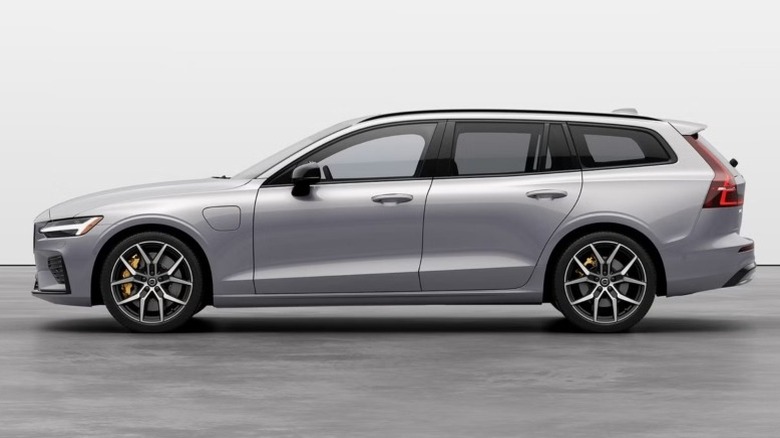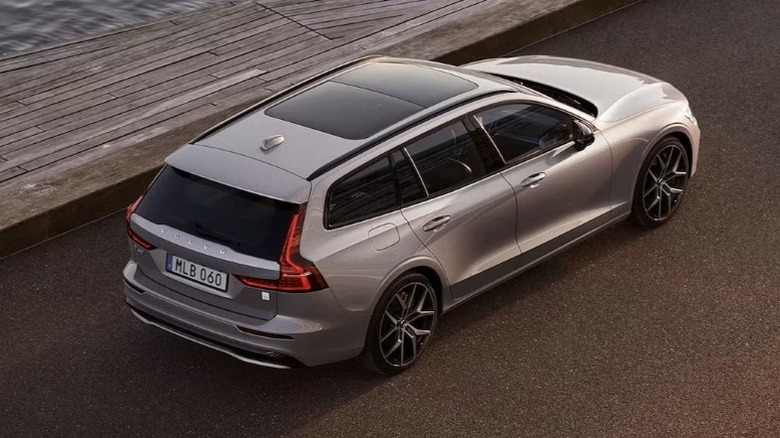Why Did Volvo Discontinue The V60? Possible Reasons, Explained
In an age where even the long-lived Subaru Outback is swapping its wagon silhouette for SUV looks, you could very well say that wagons have become an endangered species in the automotive space. And now with Volvo officially confirming it has taken the V60 Polestar Engineered plug-in hybrid off sale in the U.S., you can add it to the list of victims that have fallen prey to the wagon cull. An announcement published on the Volvo site reads, "The V60 Polestar Engineered plug-in hybrid is no longer available as a new vehicle in the U.S."
So far, there's no indication of when or if the discontinued V60 PHEV might return at some point in the future. However, if a Volvo wagon is high on your list, you'll want to take a look at either the V60 Cross Country or V90 Cross Country, which will both remain available to U.S. consumers. Sadly, neither of those models is as powerful as the departed Polestar Engineered PHEV, which generates 455 total horsepower and 523 pound-feet of torque from a hybrid setup consisting of a turbocharged 2.0-liter four-cylinder engine and a rear-mounted electric motor.
By comparison, the 2025 V60 Cross Country makes 247 hp and 258 lb-ft of torque from its turbocharged 2.0-liter four-cylinder, while the Volvo V90 Cross Country produces 295 hp and 310 lb-ft of torque thanks to a turbocharged and supercharged 2.0-liter four-cylinder mill. While no official reasons were given by Volvo on its site for dropping the fast luxury wagon, we've explored some possible reasons for the company's decision to kill off the wagon.
Disappointing sales might have been a factor in the Volvo V60's demise
As great a wagon as the V60 Polestar Engineered plug-in hybrid actually is, it doesn't produce the desired numbers in the sales chart. In 2024, it sold just 939 units, which, while abysmal, represents a 337-unit increase over the 2023 sales of 602 V60 Polestar Engineered PHEV cars. Sales were even lower in 2021 and 2022, at 456 and 120 units, respectively — meaning the highest annual sales the V60 Polestar Engineered plug-in hybrid wagon has achieved was in 2020, when 1,311 units were moved.
Now, it's hard to tell whether the issue with the V60 Polestar Engineered PHEV is because of a supply constraint or if there's just not enough demand for the model. However, discussion threads indicate that Volvo might have sold a lot more units if the cars were readily available. Going by the comments online, you can tell there's some interest in the V60 Polestar, but supplies did seem limited. However, if demand was indeed insufficient, then you can understand why the wagon was pruned.
Volvo moved V60 PHEV production to Belgium
The Volvo V60 Polestar Engineered PHEV has struggled with weak consumer demand, it's natural to attribute its discontinuation to poor sales alone. However, in a statement, a Volvo spokesperson told Car and Driver that the wagon was canceled because the company moved V60 production to its plant in Gent, Belgium. The Gent factory has been in operation since 1965 and already produces models such as the Volvo V60 Cross Country, C40 Recharge, EX30, as well as the XC40 and XC40 Recharge.
As of now, Volvo's other active car manufacturing facility in Europe is the Torslanda Plant in Sweden, where the V60 model line production is moving from. The Swedish facility can produce up to 300,000 cars each year and is also responsible for models such as the Volvo XC90, S90, V90, S60, and V60. Over in Ridgeville, Berkeley County, South Carolina, Volvo builds the EX90 electric midsize SUV and Polestar 3, which became the First Polestar model to be built in the U.S. when it began production in 2024. The company also has production facilities in Chinese cities of Daqing, Chengdu, and Taizhou.


